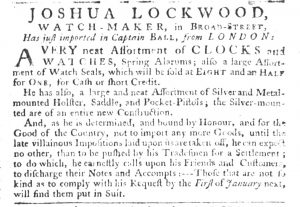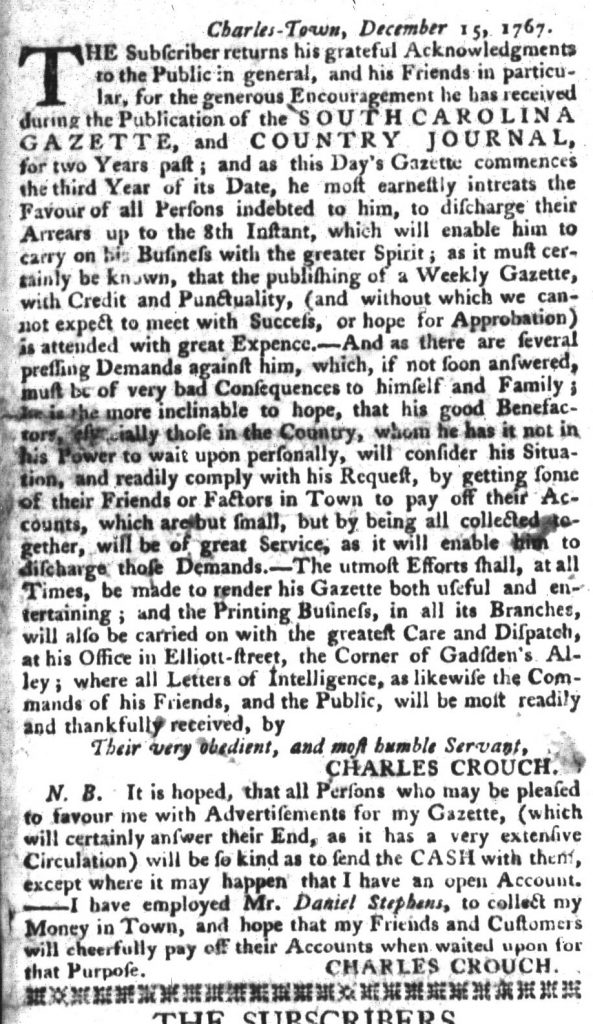What was advertised in a colonial American newspaper 250 years ago today?

“ALL Persons indebted to me / are desired to pay, / Or they will sued be, / and that without delay.”
Advertisements calling on colonizers to pay their debts frequently appeared in newspapers from New England to Georgia, including the Connecticut Gazette. On January 14, 1774, for instance, that newspaper carried an estate notice directed to “All Persons indebted to the Estate of the Hon. JONATHAN HUNTINGTON,” asking them “to make speedy Payment, to EBENEZER DEVOTION, Executor.” In addition to that advertisement, another instructed “All Persons indebted toRussell Hubbard, by BOOK or NOTE, whose Debts are of more than one Year’s standing … to settle their respective Accounts and pay off their Notes, without delay, or they may depend on being sued to the next Court.” Given the circulation of the newspaper in New London and beyond, he asserted that he “expects that this will be as sufficient a Warning as if he wrote to each Person separately.”
Seth Wymund Holmes also took to the pages of the public prints in his efforts to encourage his debtors to make good on what they owed. He resorted to a different format than Devotion and Hubbard, making his request (and delivering his threats of legal action) in verse. Holmes composed four stanzas of four lines each. “ALL Persons indebted to me / are desired for to pay,” his poem began, “Or they will sued by, and that without delay.” He appealed to the conscience: “So will the Sum amount: / How can you it abide / To add to your Account / Trouble and Cost beside?” He also lamented how long he carried those debts, incorporating a strategy that appeared in many other advertisements that did not resort to poetry. “As many Debts now standing be, / for seven Years, to croud my Books,” Holmes declared, “I do protest I hate to see / such dull and heavy looks.” In case neither asking debtors to do the right thing nor stating how long he had extended credit without receiving payment worked, Holmes circled back to threatening to sue in the final stanza. “I therefore warn Debtors to come, / and Payment make with speed, / Or they will shortly hear their Doom / in Letters plain to read.”
Holmes certainly did not produce a great work of literature, but that was not his goal. Instead, he sought to draw the attention of those who owed him money. He also aimed to make his message memorable. The format of his advertisement, the amount of white space that remained after setting type for each line, distinguished it from the dense text in so many other notices. Once that aspect of Holmes’s advertisement prompted readers to take a closer look, they may have considered the poem such a novelty that they read each stilted stanza instead of skimming through the notice like they might have done with the advertisements placed by Devotion and Hubbard. Holmes presented something different to readers of the Connecticut Gazette. Whether or not that convinced his debtors to settle accounts, this strategy likely increased the chances that they knew he intended to sue them if they did not.









